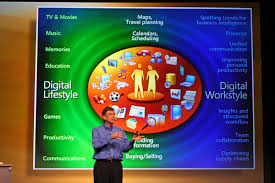Is This Both the Smartest and the Dumbest Generation?

So I’m teaching a seminar this semester on Technology, Biotechnology, and Democracy. Its balanced effort, of course, will be show how technology makes our lives both better and worse, as well as how technology both enhances and threatens our democracy.
One irony about this course is that it will use no technology beyond electricity, air conditioning (imagine how hellish the South was before it was invented), and perhaps heating toward the end of the semester. Well, I will also ask students to download some articles and chapters off the web. I’m pro-choice on e-books and devices with which to read them. I’m now strongly opposed to students using laptops, large tablets, and such in class. They’re already quite techno-plagued with ADD without tempting them to multitask their way to a more serious case still on my time.
My whole “teaching method” will be talking about and having students write papers about books and articles. It’s true that they won’t be all “great books,” and I’m assigning more reading and going through it more quickly than I would in a course in political philosophy or constitutional law.
We’ll start with Mark Bauerlein’s The Dumbest Generation: How the Digital Age Stupefies Young Americans and Jeopardizes Our Future. That over-the-top title (which I don’t like) doesn’t do justice to the content of the book, which shows that young people are getting smarter in some ways, but dumber in others. Unfortunately for our future, the ways they’re getting dumber are far more important for their dignity and happiness.
Let me just focus on a couple of paragraphs (pp. 94-95) in his chapter “Screen Time.” I will highlight his key points in a way appropriate for the teaching method of the blog. And I will dispense with using quotation marks when I use Bauerlein’s exact words. It goes without saying that I’ve slipped in some thoughts of my own:
1. Virtually all of our students have hours—and often many, many hours—of daily exposure to screens.
2. So they excel at multitasking and interactivity, and they have very strong spatial skills.
3. They also have remarkable visual acuity; they’re ready for rushing images and updated information.
4. BUT these skills don’t transfer well to—they don’t have much to do with—the non-screen portions of their lives.
5. Their screen experiences, in fact, undermine their taste and capacity for building knowledge and developing their verbal skills.
6. They, for example, hate quiet and being alone. Because they rely so much on screens keeping them connected, they can’t rely on themselves. Because they’re constantly restless or stimulated, they don’t know what it is to enjoy civilized leisure. The best possible punishment for an adolescent today is to make him or her spend an evening alone in his or her room without any screens, devices, or gadgets to divert him or her. It’s amazing the extent to which screens have become multidimensional diversions from what we really know about ourselves.
7. Young people today typically are too agitated and impatient to engage in concerted study. Their imaginations are impoverished when they’re visually unstimulated. So their eros is too. They can’t experience anxiety as a prelude to wonder, and they too rarely become seekers and searchers.
8. They have trouble comprehending or being moved by the linear, sequential analysis of texts.
9. So they find it virtually impossible to spend an idle afternoon with a detective story and nothing more.
10. That’s why they can be both so mentally agile and culturally ignorant. That’s even why they know little to nothing about how to live well with love and death, as well as why their relational lives are so impoverished.
11. And that’s why higher education—or liberal education—has to be about giving students experiences that they can’t get on screen. That’s even why liberal education has to have as little as possible to do with screens.
12. Everywhere and at all times, liberal education is countercultural. And so today it’s necessarily somewhat anti-technology, especially anti-screen. That’s one reason among many I’m so hard on MOOCs, online courses, PowerPoint, and anyone who uses the word “disrupting” without subversive irony.





